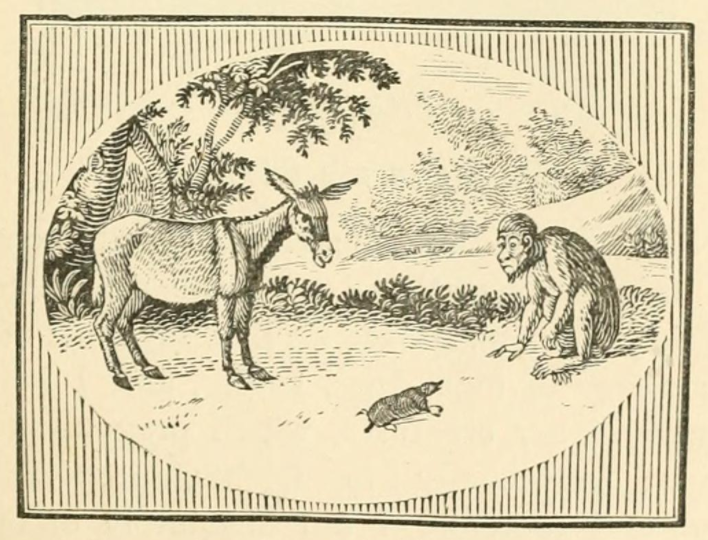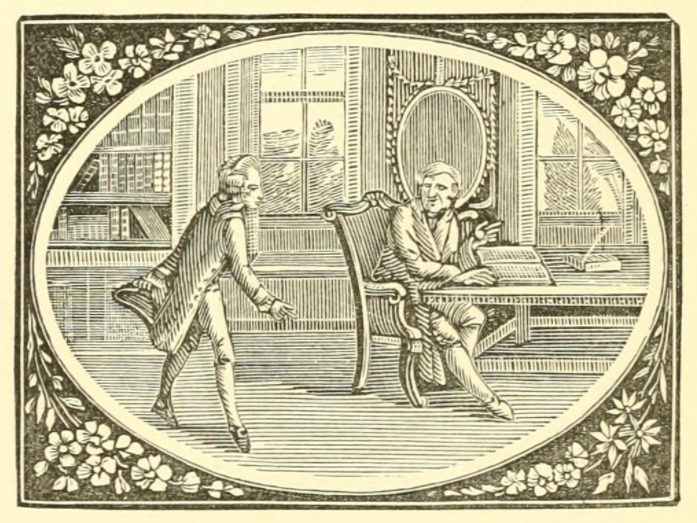141. Of a Wolf, Persuading a Procupine that She Would Lay Down Her Darts
A wolf, huntering, had bent his mind upon a porcupine which nevertheless he dared not to attack because she was fortified everywhere with darts. But a cunning being thought on of destroying her, he began to persuade her not to carry so great a burden of darts on her back in a time of peace, seeing that the archers did not carry anything unless when the time of battle approached, to whom the porcupine said, "It is to be believed always to be a time of fighting against a wolf."
Moral. This fable hints that a wise man ought always to be fortified against deceits of enemies and foes.
142. Of a Mouse Freeing a Kite
A mouse, having espied a kite entangled in the snare of the fowler, pitied the bird, although an enemy to him, and the bands being gnawed with his teeth, he made a way for him of flying out. The kite, unmindful of so great benefit, when he saw himself loosed, seizing the mouse suspecting no such thing, tore him with his claws and bill.
Moral. This fable shows that wicked men are wont to repay thanks of this kind to their benefactors.
143. Of a Snail, Desiring of Jupiter that She Might Be Able to Bear Her House with Her
When Jupiter, from the beginning of the world, bestowed on all animals the gifts which they had desired, the snail desired of him that she might be able to bear about her house. Being asked by Jupiter why she demanded such a gift from him, which would be heavy and troublesome to her, she said, "I had rather bear so heavy a burden perpetually than not to be able to avoid a bad neighbor when I choose."
Moral. This fable shows that the nighborhood of bad men is to be avoided with every disadvantage.
144. Of a Hedgehog, Casting Out a Viper, Her Host
A hedgehog, perceiving the winter to approach, asked the viper that she would grant a place to him in her cavern against the extremity of the cold, which, when she had done, the hedgehog, rolling himself hither and thither, pricked the viper with the sharpness of his darts, and tormented her vehemently. She seeing herself ill treated, when she took the hedgehog guestwise, entreated him with fair words, that he would go out, seeing that the place was too narrow for both. To whom the hedgehog said, let him go out, who cannot abide here; wherefore the viper perceiving, there was not place for her there, departed thence out of her lodging.
Moral. This fable shows that those are not to be admitted into fellowship, who are able to cast us out.

145. Of a Certain Husbandman and a Poet
A certain husbandman coming to a poet, whose fields he ploughed, when he had found him alone among his books, asked him, by what means he was able to live so alone? To whom he said, I began only to be alone, since you came hither.
Moral. This fable shows that learned men, who continually are thronged with a crowd of the most learned men, then are alone, when they are among illiterate fellows.

No comments:
Post a Comment
Comments are limited to Google accounts. You can also email me at laurakgibbs@gmail.com or find me at Twitter, @OnlineCrsLady.